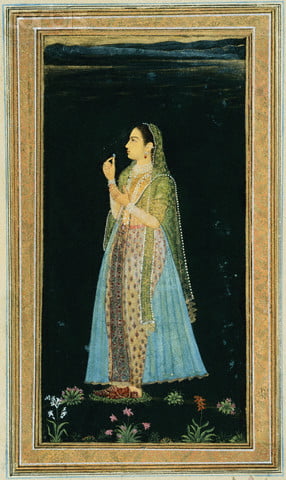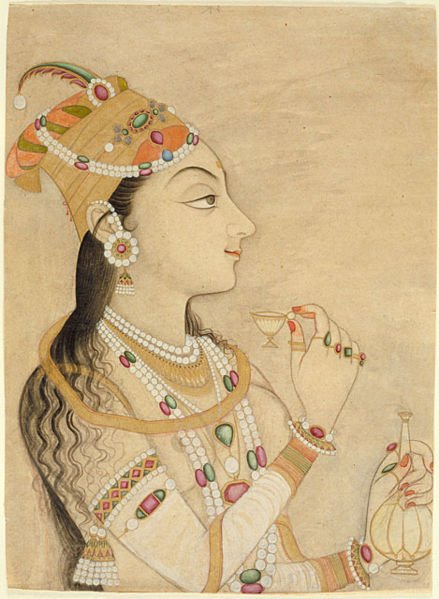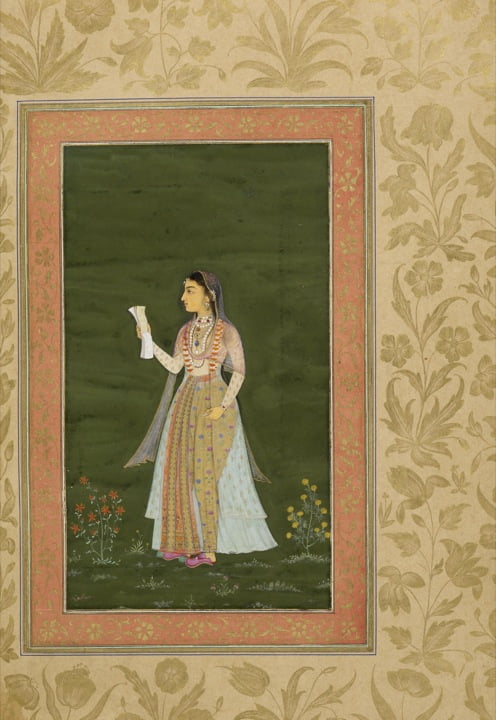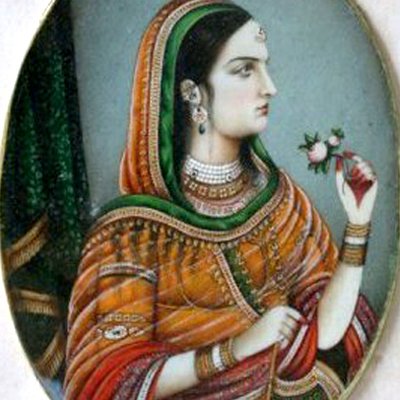Mughal history is fascinating not just in political terms.
Though we learn off by heart the stories of Mughal Kings, we often forget the royal Mughal women of the court.
Though they did not come out in the open, the Mughal women held a crucial role in regal decision, delegations, designing of cities and of course, carrying the lineage and guiding them to be men and women of the royal dynasty.
Since Akbar prohibited the Mughal women from marrying, the sisters of the King held a crucial position in the royal court.
Nur Jahan (Mehrunnisa)
A woman who ruled the kingdom when the throne belonged to Jahangir, Nur Jahan is mostly referred as a temptress and manipulator. She was the twentieth wife and chief consort of Jahangir. She is the only Mughal woman to have her name on the Mughal coins. She was born to affluent parents who occupied offices in the Mughal court. She ruled with an iron fist making crucial decisions when the Mughal Empire was in the heyday especially when Jahangir found himself in a dilemma. She was educated in Arabic and Persian languages, politics, diplomacy, history, art, literature, music and dance.
Jahanaara
Daughter to Shah Jahaan, Jahanaara is the only Mughal Princess to write her autobiography. (Even Mughals king hired somebody to write their history.) She hoped the heir apparent Dara would come to the throne and would let her marry a Hindu Lord whom she desired. But her sweetheart joined hands with Aurangazeb, another son of Shah Jahan, defeated Shah Jahan and killed his elder brother Dara. Shah Jahaan lost his wife and mother very early hence, Jahanaara served as the vizier. She made delegations and political appointments. She was well educated and planned the architecture of streets like Chandni Chowk. Auranazeb wanted her at his side as an adviser but she chose to take care of her father going voluntarily into the prison. An ardent practitioner of Sufism, Jahanaara was a very spiritual person who led a simple life despite the tragedies she witnessed.
Gulbadan
Half-sister of Humayun and daughter of Babur. She served as an adviser to her brother Humayun and helped in making decisions that would affect the kingdom. Humayun’s half-brothers attempted many times to kill him and his lineage to take over the throne. Humayun could not kill his brothers since he promised Babur that he would never hurt them. Gulbadan stood by Humayun though she was his half-sister. She wrote HumayunNama which foretells the rebellion of brothers for the throne which inevitably led to the downfall of the Mughal Empire.
Khanzaada
Babur’s favourite sister and aunt of Humayun, Khanzaada is a fighter and a survivor. She was captured by the Uzbeks and was held as a slave to Shaibani Khan. It is said that she refused to succumb to him and she had various scars of her face which was inflicted by her captors. She waited patiently for eight years when Babur finally came and saved her. She held a great role when it came to proper guidance of Humayun.
Maham Anga

Wife to the chieftain of Marwar, Nadim Khwaja, Maham Anga was the milk mother of Akbar. Marriages were first and foremost political affair for the royal families. Hence, the woman the King chooses for a wife would belong to a different clan and hence would not be familiar with the Mughal traditions. But the kings could not let the heirs forget the traditions of their family, hence a woman of the royal court who had milk to feed the baby was chosen as milk mother to the heir. Maham Anga was as good as a mother for King Akbar and she made sure that he would not have any threats from his brothers. She always maintained that the best abled person in the court should be the King and hence, when her son, Akbar’s milk-brother wanted the throne, she told him to earn it than cheat.
Though Mumtaz Mahal, Jodha and many other wives of the Kings played a crucial role in the Kingdom we cannot call them Mughals because they were born and bought up in different families. Though they lived in a strict world which gave them luxuries but made them powerless, these Mughal women shows us how they held their dignity even in tumultuous times.






































